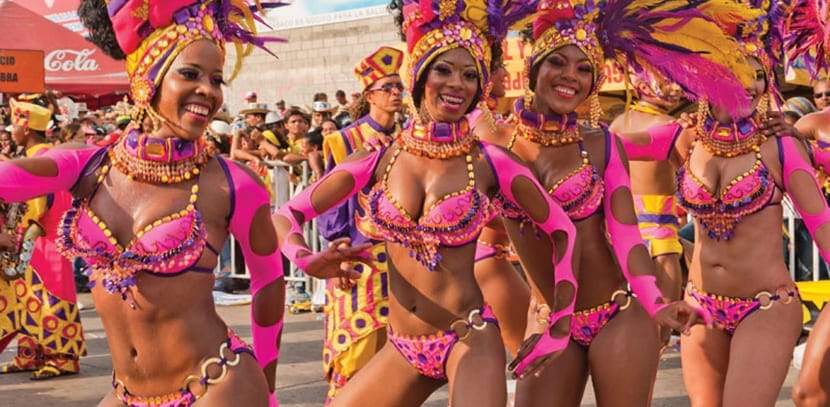
Brazil, one of the largest countries in America, is a place where thousands of tourists decide to travel each year to visit popular cities such as Rio de Janeiro, natural landscapes such as the Iguazú Falls or beautiful beaches such as those in the state of Alagoas.
Good weather and the sympathy of the Brazilians is guaranteed. During your trip you will be able to mix with the natives as one more as long as you do not access the areas of greater risk that all countries have. If you want to know a little more about Brazil and its customs, pay attention to everything you will find below.
Gastronomy
As in other Latin American countries, Brazilian gastronomy is the result of the mixture of cuisines as diverse as indigenous, European and African. The range of dishes with which to surprise the visitor is quite wide. One of the most notable is the feijoada, made up of salted pork accompanied by black beans. Regarding drinks, the caipirinha is very popular, a cocktail that began to be prepared in the XNUMXth century and is now enjoyed on all five continents.
Brazilian hospitality
Brazilians have a cheerful, carefree and friendly character, so they will always try to help you in any way they can. They are also known for their hospitality and open mind. With them you can enjoy very pleasant days.

Religion
Due to the influence of Portugal, Brazil is a country with a Christian majority. It is estimated that 65% of the population is Catholic while 22% is Protestant. Its religiosity can be seen in the large number of monuments and churches scattered throughout the country. In fact, when you think of Brazil, the famous Christ of Corcovado, emblem of Rio de Janeiro, surely comes to mind.
Social customs
The way of greeting in Brazil varies a lot depending on where you are. For example, in Rio de Janeiro it is customary to give two kisses as in Spain, while in Sao Paulo one usually only gives one on the right cheek and in the case of Minas Gerais, three kisses are given!
Regarding meal times, in Brazil people usually start dining from eight in the afternoon onwards.
Business
When it comes to doing business, Brazilians are never in a rush to close a deal. They take their time and move forward in negotiations based on trust. When saying goodbye in a first meeting, the normal thing is to exchange some business cards written in Portuguese. In business meetings held in the country, the most common is to speak in Portuguese, although it will also be done in English if the occasion requires it.

Brazilian hobbies
There is nothing that makes Brazilians happier than music and sports. Brazil is the country with the most soccer world championships conquered and they love music, whether to the rhythm of samba or capoeira, an Afro-Brazilian martial art that mixes acrobatics, dance and music.
Traditional costumes
In each region of Brazil we find different types of traditional dresses. For example, in Salvador de Bahía, women wear baianas, made up of a blouse and a long white skirt with lace. They usually wear long necklaces and a headscarf as an ornament, which undoubtedly indicates that the Baianas are linked to Afro-Brazilian culture.

Carnival
The four days prior to Ash Wednesday, the most important festival in Brazil, Carnival, is celebrated, so the date varies between February and March. Many cities in Brazil organize their own carnival, but the most popular in the world is that of Rio de Janeiro.
This takes place in the Sambadrome, a stadium with a capacity for 75.000 spectators and a 500-meter-long stage where samba schools meet to perform a show lasting more than an hour in which each school disguises itself as a theme. to compete with each other. To attend the Sambadrome you have to buy a ticket or leave as a student at one of the samba schools.
Weddings
A very curious custom of Brazilian weddings is for the bride to wear the names of friends who are still single on the inside of her dress. And at the wedding banquet a sweet called bem-casado is always served, which means happily married.